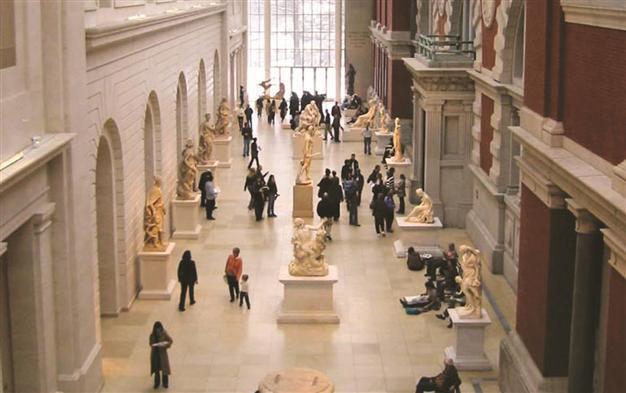No Turkish loans for Seljuk show in New York
ISTANBUL

The exhibition is scheduled for early 2016.
The Metropolitan Museum of Art (the Met) in New York is organizing a major exhibition on the Seljuks, whose medieval Islamic empire expanded from Central Asia into much of Anatolia, without loans from Turkey, the online The Art Newspaper has reported. Turkey is refusing to lend artifacts to leading British and American museums until the issue of disputed antiquities is resolved.Experts fear that loaned material from Iran and Russia’s collections will also not be present at the show. The Met’s problem in securing Turkish loaned material echoes those surrounding the British Museum’s exhibition on the Hajj, which went ahead in London in 2012 without Turkish artifacts after tangled disputes over an inscribed stele with a relief of Heracles, which have yet to be resolved.
“In the past five years, Turkey has pursued a series of claims for a list of what it regards as ‘stolen’ objects in the collections of museums in Britain, Europe and the U.S. Despite a change at the top of Turkey’s Culture Ministry and the country’s museums authority, it appears the Met did not pursue an official request for loans after thorny initial discussions with Ankara, according to sources familiar with the project. Turkey’s stance may be more conciliatory now. In a statement, its Culture Ministry tells us that it is ‘open to negotiations’ with the Met and noted the issue had been ‘quite inconvenient for both parties.’ The Met declined to respond to questions about the exhibition or the current state of restitution claims from Turkey,” reports the website.
Without loans from Turkey, and with Iranian loans unlikely, unless there is a sudden improvement in relations between the U.S. and Iran, the Met will have to rely on major loans from British and European institutions instead.
The exhibition could include, scholars suggest, dragon door-knockers from Berlin, some of the earliest Islamic carpets in existence from Copenhagen, works from the great pottery reserves of the British Museum, and stone and figural carving from the Met’s own strong collections. Some of the finest Seljuk Qurans are also in Western collections.
The exhibition is scheduled for early 2016. Museums that have been approached for loans from their Islamic collections range from the British Museum to the David Collection in Copenhagen. The Victoria & Albert Museum in London and Berlin’s Museum für Islamische Kunst are also potential sources for loans.
“[The Met] will be able to find Seljuk or Rum material in other collections, but it is harder work, and they will be missing important pieces,” said Kjeld von Folsach, the director of the David Collection, speaking to The Art Newspaper.
“It is a very painful problem. I can understand [the Turks’] position and their request. But many of these things have been in collections for very long periods. As the world is today, we could be rather pleased that not everything is in northern Iraq or Syria, for the time being,” he said.
In 2011, a delegation led by Murat Süslü, then Turkey’s director-general for cultural heritage and museums, went to New York demanding information on 18 items in the Met’s collection.
“These disputes, it is said, are neither serving the interests of Western museums, nor the Turkish government’s embrace of its Ottoman and Islamic heritage. One Istanbul-based insider called the embargo on loans ‘an irreparable loss from their point of view to present their state and its history and culture,’ in one of the most prestigious venues worldwide,” reported The Art Newspaper.
















